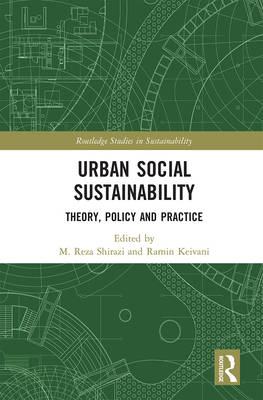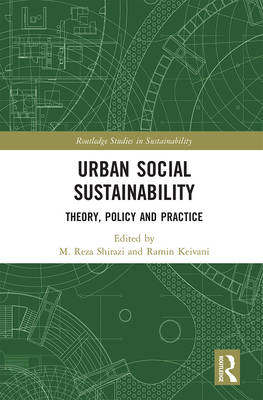
- Afhalen na 1 uur in een winkel met voorraad
- Gratis thuislevering in België vanaf € 30
- Ruim aanbod met 7 miljoen producten
- Afhalen na 1 uur in een winkel met voorraad
- Gratis thuislevering in België vanaf € 30
- Ruim aanbod met 7 miljoen producten
Urban Social Sustainability
Theory, Policy and Practice
Omschrijving
This ground breaking volume raises radical critiques and proposes innovative solutions for social sustainability in the built environment. Urban Social Sustainability provides an in-depth insight into the discourse and argues that every urban intervention has a social sustainability dimension that needs to be taken into consideration, and incorporated into a comprehensive and cohesive 'urban agenda' that is built on three principles of recognition, integration, and monitoring. This should be achieved through a dialogical and reflexive process of decision-making. To achieve sustainable communities, social sustainability should form the basis of a constructive dialogue and be interlinked with other areas of sustainable development. This book underlines the urgency of approaching social sustainability as an urban agenda and goes on to make suggestions about its formulation.
Urban Social Sustainability consists of original contributions from academics and experts within the field and explores the significance of social sustainability from different perspectives. Areas covered include urban policy, transportation and mobility, urban space and architectural form, housing, urban heritage, neighbourhood development, and urban governance. Drawing on case studies from a number of countries and world regions the book presents a multifaceted and interdisciplinary understanding from social sustainability in urban settings, and provides practitioners and policy makers with innovative recommendations to achieve more socially sustainable urban environment.
Specificaties
Betrokkenen
- Uitgeverij:
Inhoud
- Aantal bladzijden:
- 234
- Taal:
- Engels
- Reeks:
Eigenschappen
- Productcode (EAN):
- 9780367662035
- Verschijningsdatum:
- 30/09/2020
- Uitvoering:
- Paperback
- Formaat:
- Trade paperback (VS)
- Afmetingen:
- 156 mm x 233 mm
- Gewicht:
- 459 g

Alleen bij Standaard Boekhandel
Beoordelingen
We publiceren alleen reviews die voldoen aan de voorwaarden voor reviews. Bekijk onze voorwaarden voor reviews.










